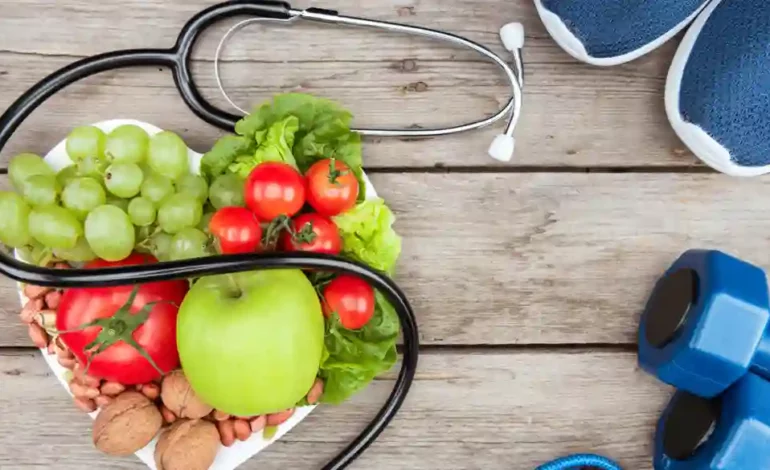
Importance of Balanced Diet in a Healthy Lifestyle
A balanced diet provides the body with nutrients to function well. It includes fruits, vegetables, dairy, grains and proteins. It also includes healthy snacks and plenty of water.
Fill half of your plate with nonstarchy vegetables, leafy greens, and legumes. Choose low-fat or fat-free dairy products and limit those with added sugars. Add a quarter-plate of whole grains such as brown rice, quinoa and oats.
Protein
Protein provides the body with energy. It also helps prevent diseases and promotes proper growth in children. It is important to consume a balanced diet that contains healthy proteins, carbohydrates, fats and vitamins and minerals. A balanced diet will help you maintain a healthy weight and reduce the risk of chronic diseases like diabetes, heart disease and cancer.
Protein foods include meat (chicken, beef or pork), fish, poultry, eggs and dairy products (milk, cheese and yogurt). Vegetables also contain protein. Aim for five servings of vegetables each day.
Carbohydrates
Carbohydrates are one of three large groups of energy-yielding nutrients called macronutrients, along with fats and proteins. They are a major source of energy for the body, which prioritises burning carbohydrates over fats and protein when available.
The body breaks down simple carbohydrates, which contain only one or two sugar molecules, quickly. This causes a quick burst of energy, but also leaves you feeling tired. Simple carbs are found in processed foods, such as soda and candy, and many non-food sources of calories, like fruit and fresh vegetables.
The body breaks down complex carbohydrates, which have more than three sugars linked together, more slowly. They are found in whole grains, fruits and vegetables, and dairy products. They provide energy over a longer period of time.
Fats
Fats are essential building blocks for cell membranes, hormones and nerve tissue. They also supply energy. However, the type of fats we eat is crucial to our health. “Bad” fats like saturated and trans fats and cholesterol contribute to weight gain, clogged arteries and increased risk for certain diseases. “Good” fats include monounsaturated and polyunsaturated fats and omega-3 and omega-6 fatty acids, which are considered essential fats because the body cannot make them.
A balanced diet includes carbohydrates, proteins, fats or lipids, and micronutrients including vitamins and minerals. It is important to limit empty calories from foods such as cakes and biscuits, and to get enough energy from healthy sources like whole grains, vegetables, fruit and lean meats. A healthy diet also helps regulate blood sugar levels and bowel function.
Vitamins
Vitamins do a variety of jobs, from fighting infection to helping blood clot. They’re found in foods like meat, fish, vegetables, whole grains, oats, and low-fat dairy products.
The fat-soluble vitamins (A, D, E, and K) dissolve in fat, so your body can store them. But the water-soluble ones (C and B-complex vitamins) travel through your bloodstream and are lost in urine, so you need a fresh supply every day.
Try to fill half of your plate with vegetables and fruit (see Eatwell Guide). Choose nonstarchy veggies like broccoli, spinach, squash, mushrooms, and leafy greens. Add a quarter-plate of whole grains, like brown rice, quinoa, or oats. And finish each meal with a small serving of low-fat dairy. That way, you’ll get all the nutrients your body needs.
Minerals
Minerals help release energy from food, support the growth of organs and make up part of your body’s cell structure. They’re in every tissue and fluid, from blood to bone.
Erosion breaks down stone, rocks and particulate to form soil that plants need. Plants pass the minerals on to herbivorous animals, which eat them and then transfer them to humans.
A balanced diet includes the right proportions of vitamins and minerals. It also includes adequate amounts of carbohydrates, fats and proteins. The mineral boron helps with bone health and enhances the absorption of calcium and magnesium. It is found in nuts, seeds and beans, and some whole grains. Vitamins and minerals need to be taken in small amounts – more isn’t better. The best sources are fruits and vegetables, low-fat dairy foods and lean meats.



